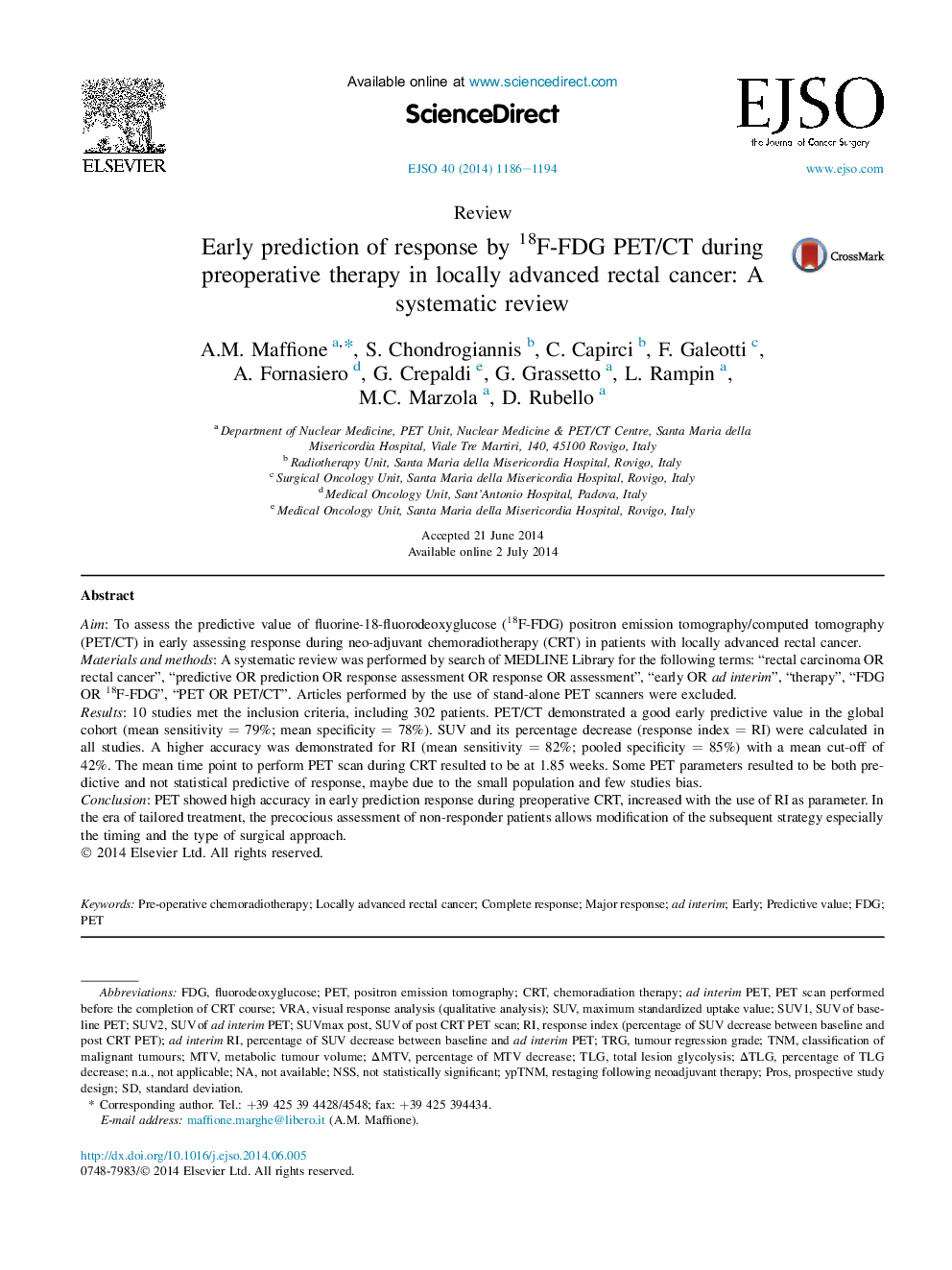| Article ID | Journal | Published Year | Pages | File Type |
|---|---|---|---|---|
| 3985163 | European Journal of Surgical Oncology (EJSO) | 2014 | 9 Pages |
AimTo assess the predictive value of fluorine-18-fluorodeoxyglucose (18F-FDG) positron emission tomography/computed tomography (PET/CT) in early assessing response during neo-adjuvant chemoradiotherapy (CRT) in patients with locally advanced rectal cancer.Materials and methodsA systematic review was performed by search of MEDLINE Library for the following terms: “rectal carcinoma OR rectal cancer”, “predictive OR prediction OR response assessment OR response OR assessment”, “early OR ad interim”, “therapy”, “FDG OR 18F-FDG”, “PET OR PET/CT”. Articles performed by the use of stand-alone PET scanners were excluded.Results10 studies met the inclusion criteria, including 302 patients. PET/CT demonstrated a good early predictive value in the global cohort (mean sensitivity = 79%; mean specificity = 78%). SUV and its percentage decrease (response index = RI) were calculated in all studies. A higher accuracy was demonstrated for RI (mean sensitivity = 82%; pooled specificity = 85%) with a mean cut-off of 42%. The mean time point to perform PET scan during CRT resulted to be at 1.85 weeks. Some PET parameters resulted to be both predictive and not statistical predictive of response, maybe due to the small population and few studies bias.ConclusionPET showed high accuracy in early prediction response during preoperative CRT, increased with the use of RI as parameter. In the era of tailored treatment, the precocious assessment of non-responder patients allows modification of the subsequent strategy especially the timing and the type of surgical approach.
